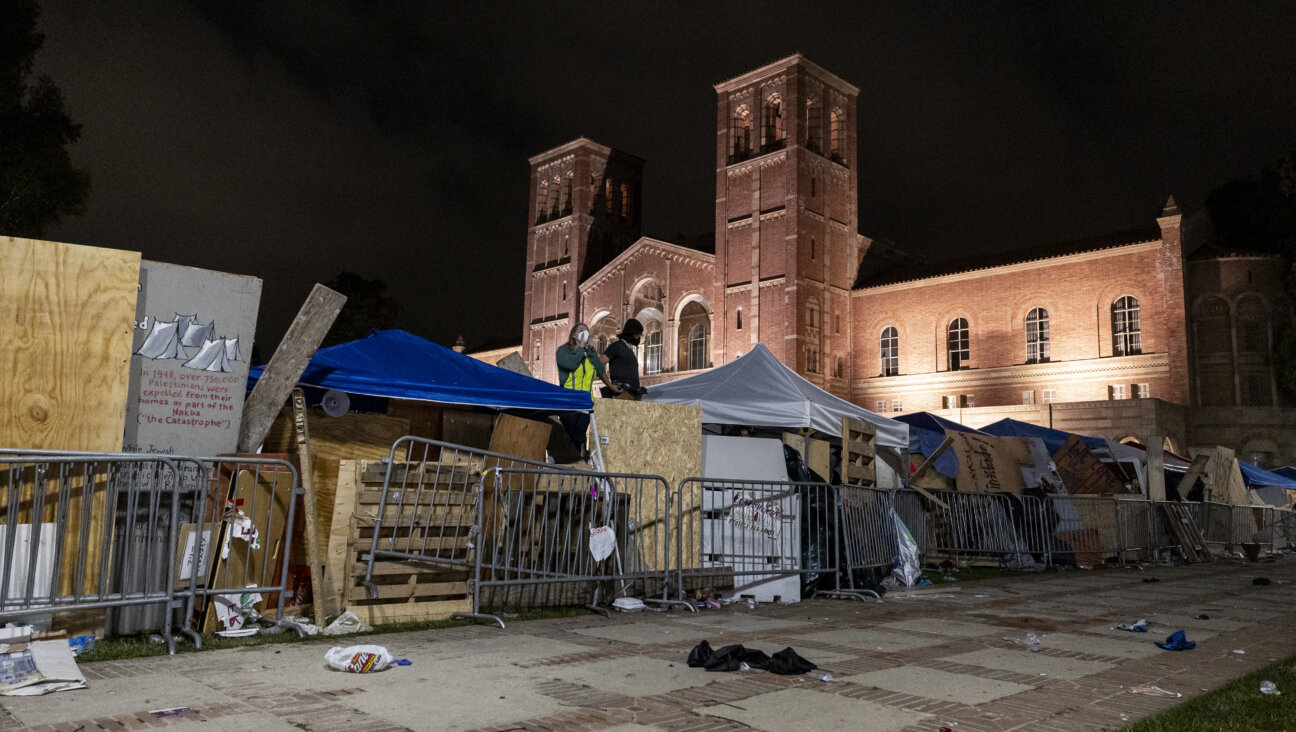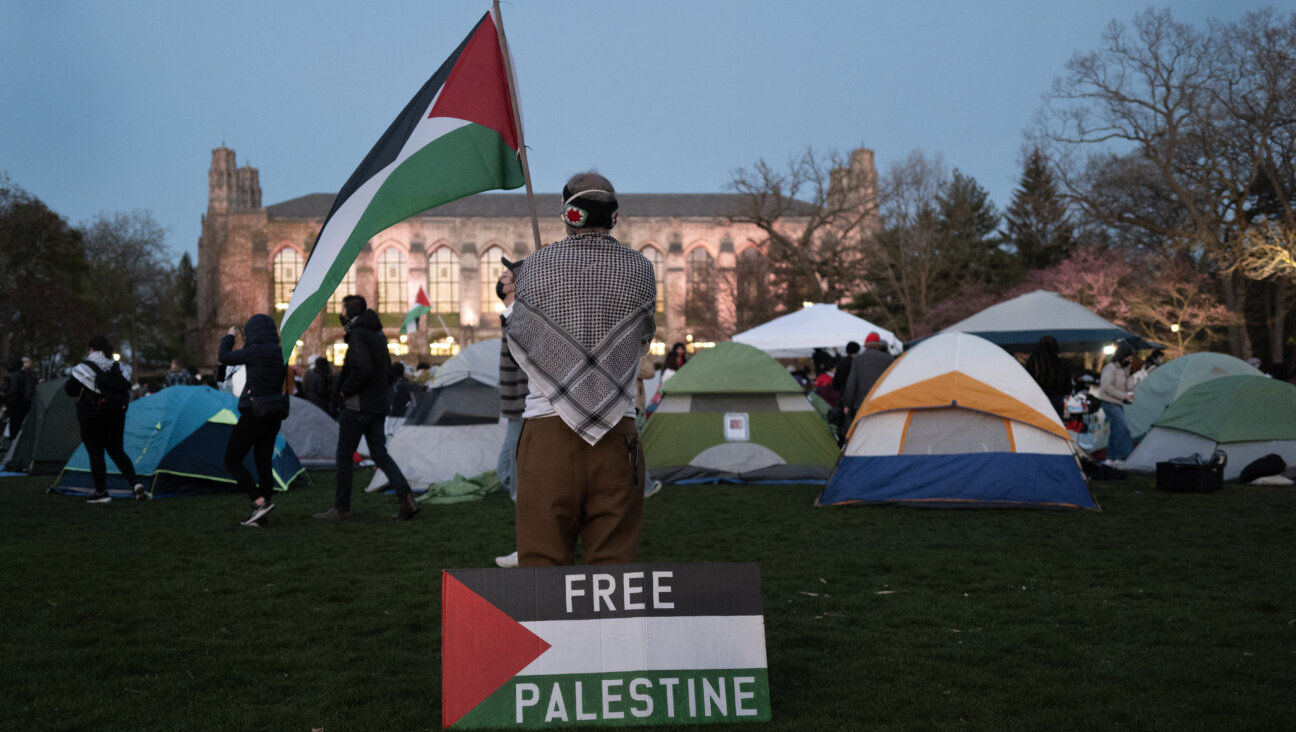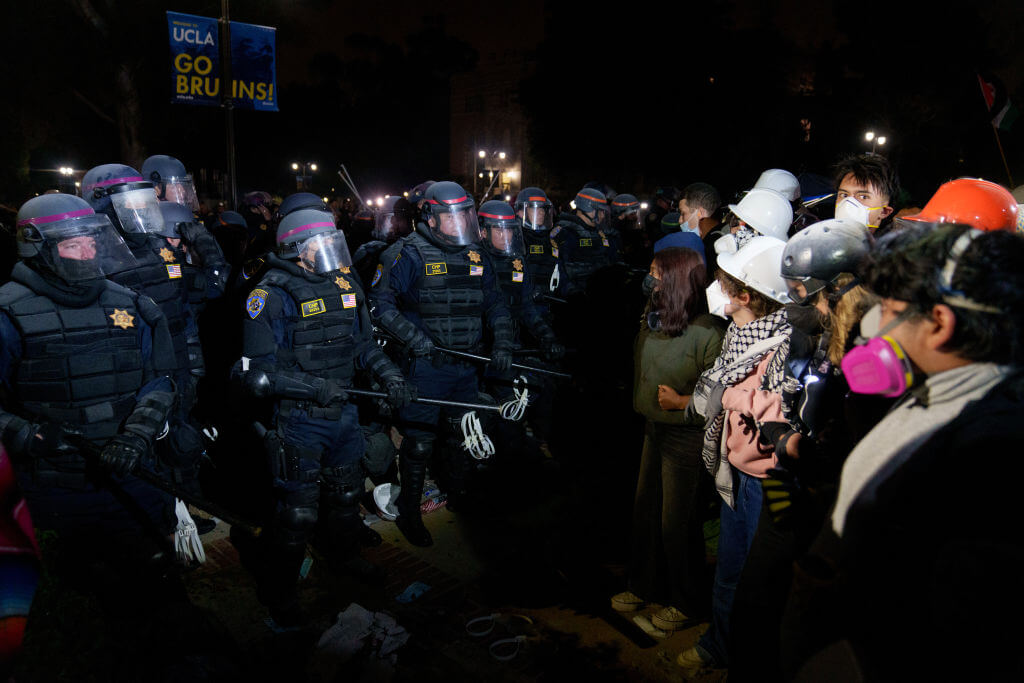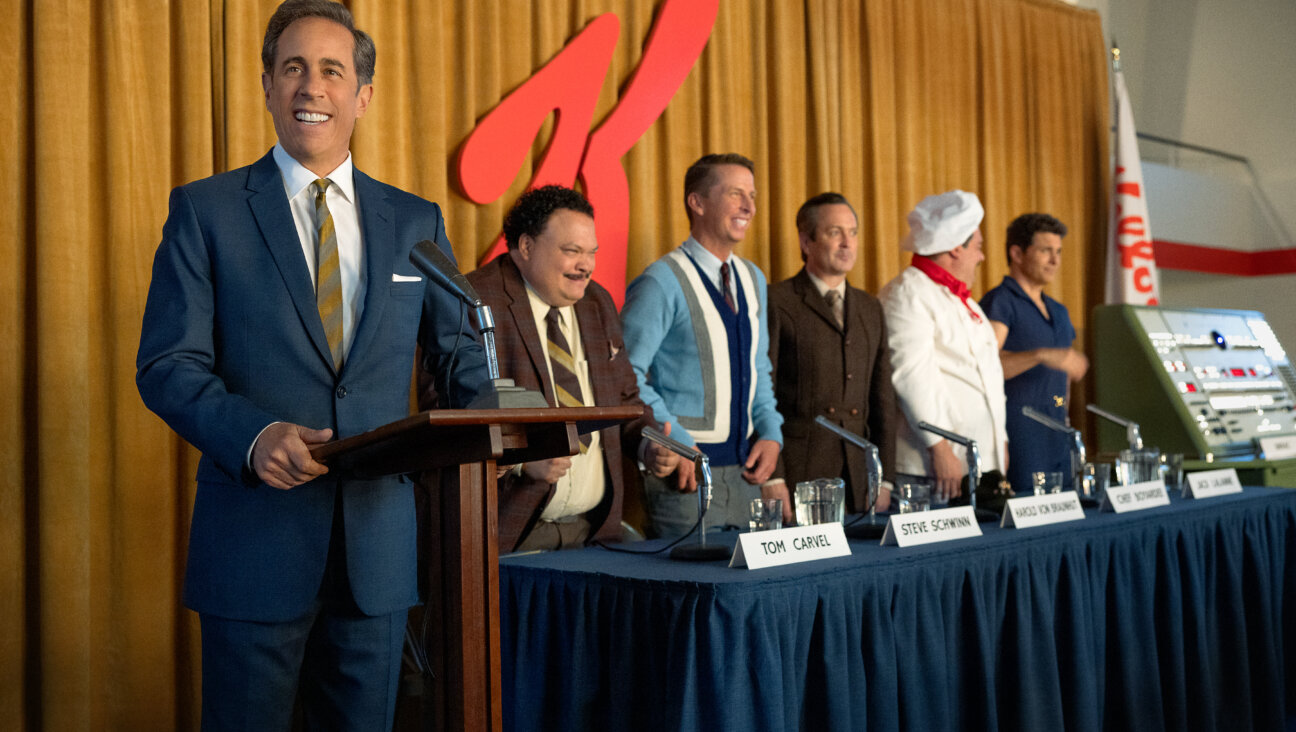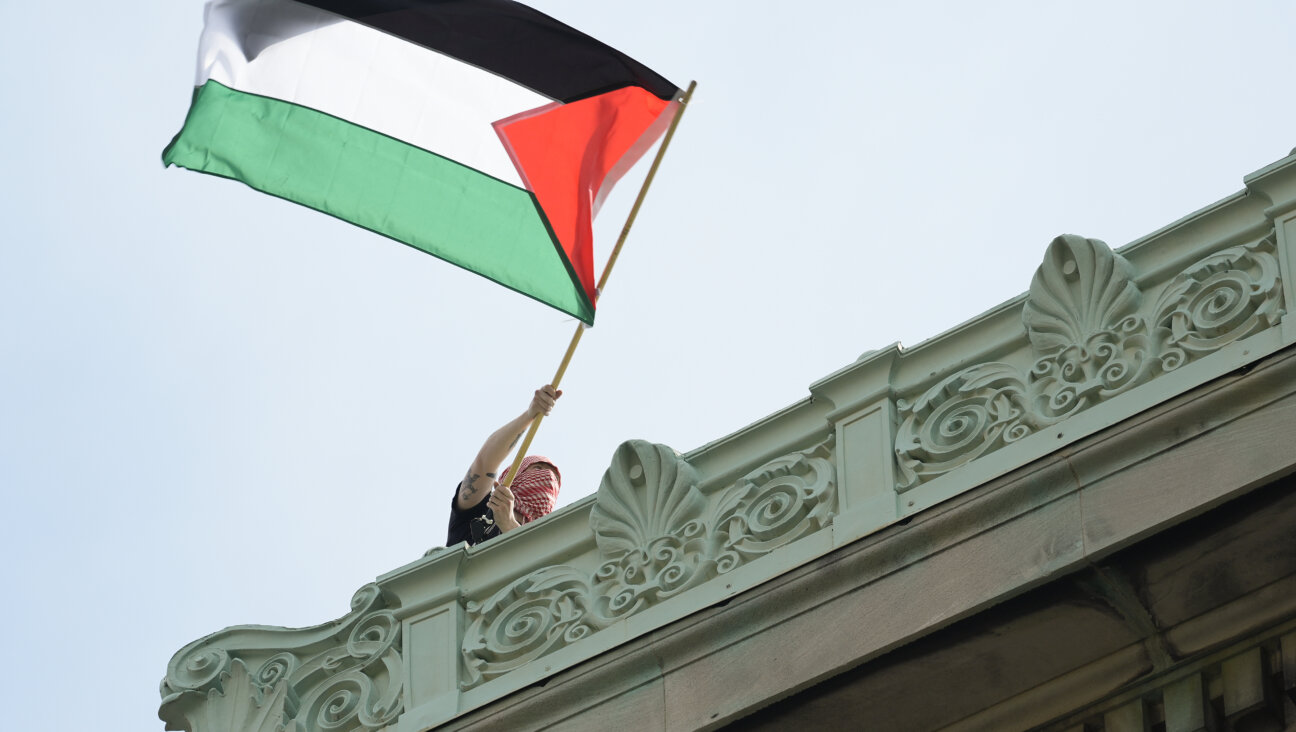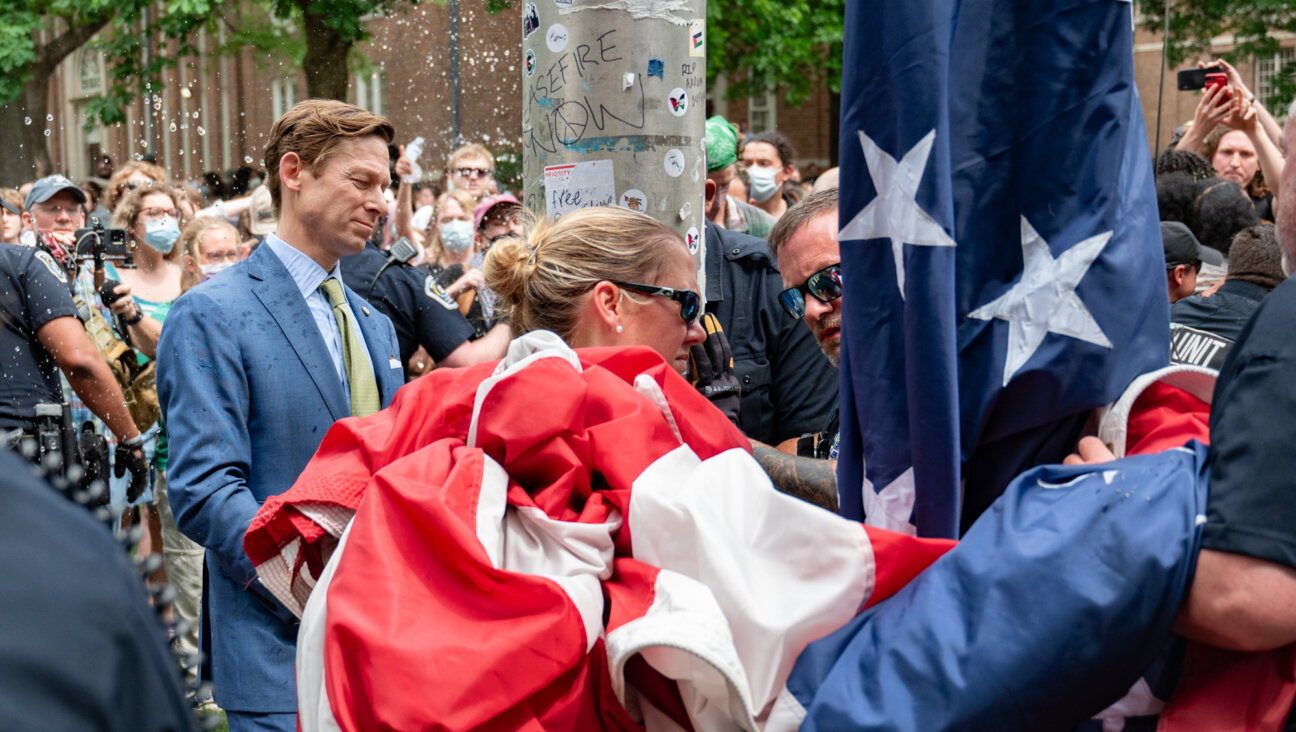Popular kids video game Roblox has become gathering space for pro-Palestinian protests
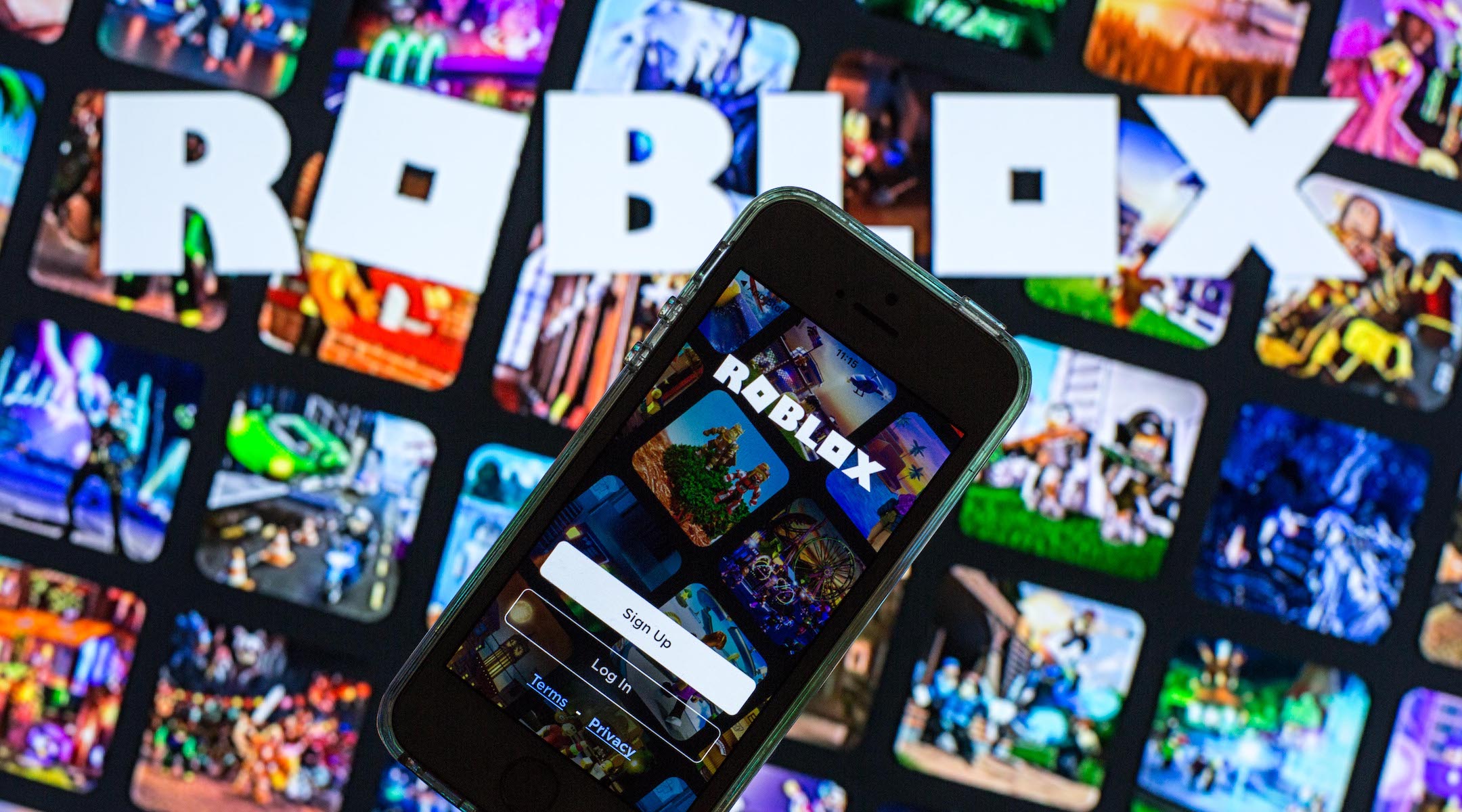
(Thiago Prudêncio/SOPA Images/LightRocket via Getty Images)
(JTA) — Israel’s Ministry of National Security is urging parents to report any pro-Palestinian harassment their children experience on the video game platform Roblox.
As Israel’s war with Hamas is set to enter its fourth week, rallies and protests in support of both Israelis and Palestinians have been held everywhere from the White House to college campuses to the streets of Europe.
Roblox is different because it has more than 65 million daily active users — around 45% of whom are 12 years old or younger — and users can interact across international borders as they create and explore virtual settings. The platform has been home to several pro-Palestinian gatherings, and the Israeli ministry is warning that game characters brandishing Saudi and Palestinian flags have been attacking players who identify as Israeli.
A video of Roblox rally, which was shared on X, the platform previously known as Twitter, has been viewed more than 24 million times.
According to CNBC, one Roblox pro-Palestinian event was visited over 275,000 times. The rallies feature users marching and gathering with Palestinian flags and signs expressing solidarity. A TikTok from Oct. 13 also shows what appears to be a pro-Israel rally in the game, too.
In one instance, which was shared in a Facebook group for Israeli parents, a parent warned that their child had seen other Roblox users possibly reenacting Hamas’ Oct. 7 attack — in which the terror group killed 1,400 Israelis in the bloodiest day for Jews since the Holocaust. The parent urged others to monitor their children’s gameplay and institute parental controls.
“We are deeply saddened by the horrific tragedy unfolding in Israel and Gaza, and our hearts go out to those who are impacted in the area or who have loved ones, family and friends in the region,” Roblox said in a statement to USA Today. “While our community standards allow for expressions of solidarity, we do not allow for content that endorses or condones violence, promotes terrorism or hatred against individuals or groups or calls for supporting a specific political party. We have an expert team of thousands of moderators along with automated detection tools in place to monitor our platform and will take swift action against any content or individuals found to be in violation of our standards.”
The Israeli ministry said it had been in touch with Roblox and had been told that reporting inappropriate or harassing content was essential to getting it removed.
This is not the first time that Roblox has run into trouble for hosting antisemitic user-created content. Last year, it removed a virtual Nazi gas chamber that users could operate.
Video game sites have previously been a hotbed for antisemitism. A 2021 survey found that 22% of adult Jewish gamers have faced antisemitic harassment while playing.
There are also numerous efforts underway to combat antisemitism in gaming spaces. In one notable example, the popular video game Fortnite introduced an in-game Holocaust museum earlier this year. And Luc Bernard, a British-French video game designer, unveiled his new game, “The Light in the Darkness,” where the characters are members of a French-Jewish family in the years before and during the Holocaust.
“The reality is, video games are the number-one-used platform now,” Bernard told JTA in August. “They’re bigger than movies, they’re bigger than music. Video games are the future of storytelling. So that’s why I also saw this as kind of a perfect platform to educate about the Holocaust.”
This article originally appeared on JTA.org.

I hope you appreciated this article. Before you go, I’d like to ask you to please support the Forward’s award-winning, nonprofit journalism during this critical time.
Now more than ever, American Jews need independent news they can trust, with reporting driven by truth, not ideology. We serve you, not any ideological agenda.
At a time when other newsrooms are closing or cutting back, the Forward has removed its paywall and invested additional resources to report on the ground from Israel and around the U.S. on the impact of the war, rising antisemitism and the protests on college campuses.
Readers like you make it all possible. Support our work by becoming a Forward Member and connect with our journalism and your community.
Make a gift of any size and become a Forward member today. You’ll support our mission to tell the American Jewish story fully and fairly.
— Rachel Fishman Feddersen, Publisher and CEO
Join our mission to tell the Jewish story fully and fairly.







